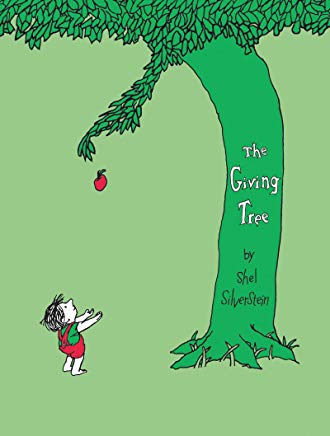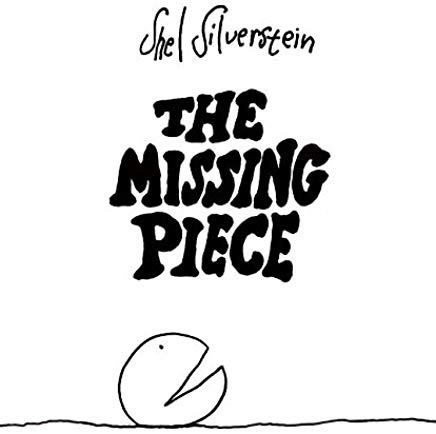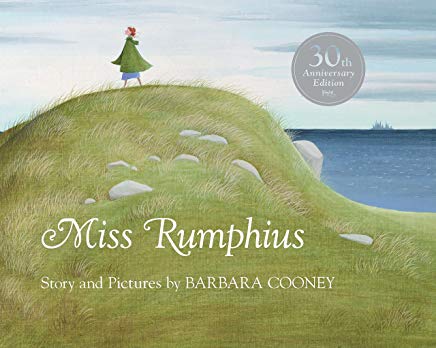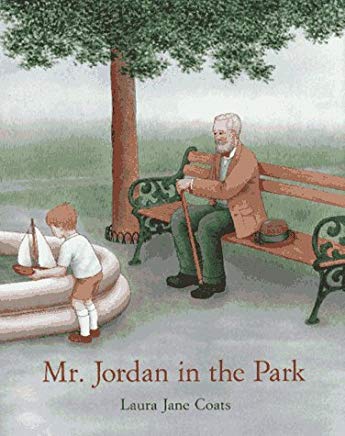The Blog
Blog Entry
The Old Man and the Tree
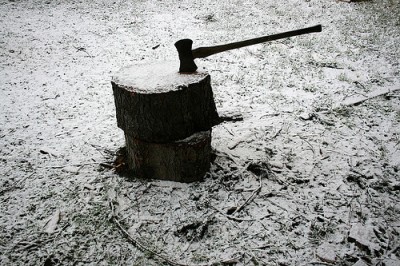
Ladies and gentlemen, let us begin to undertake the perilous assignment of examining Shel Silverstein’s The Giving Tree. But first a word from this reader concerning his inexorable transformations. It keeps getting worse. Previously mortifying photographs suddenly look good to me now, and currently unrecognizable photographs taken over the spring holiday will almost certainly become a consolation if I give them a couple of years.
Perhaps this is one of the reasons I am recently so drawn to children’s books which celebrate – even glamorize – life’s journey. Like Mr. Jordan in the Park, a moving cross-section (to this geezer at least) of one man’s life from the time he was being pushed in a stroller through the gates of an urban oasis – full of playing fields for baseball, and ponds for sailing model boats, and paths for exploring and romancing – until he’s a dapper old guy (still ambulatory thanks to the services of a picturesque cane) who has learned to enjoy watching the youngsters around him replaying those reminiscences, with a little string music thrown in for a soundtrack.
Nostalgic, yes, but not, I think, revisionist or overly sentimental, owing to the very limited parameters of the story: this doesn’t pretend to tread anywhere close to a conceivably maddening home life, professional frustrations, or thwarted larger ambitions, indeed this park is very clearly where you would go to get away from those things. Likewise in Miss Rumphius, where the focus remains squarely on all of the places – small islands and deserts and mountains – that Miss Rumphius feels compelled to go visiting, rather than whatever she’s hoping to escape. This book is effortlessly optimistic that way (even a physical injury becomes an opportunity to slow down and consider the future) and the children who finally come to know her as the Lupine Lady (for the blue and purple flowers she plants around town) hardly seem to care they’re being preached to. She leaves her mark. I’d take that sort of dotage in a second.
Quite a different sort of impact resounds from The Giving Tree, of course. For whatever gaudy flairs this book is presumed to be launching about selflessness and selfishness and the often ruthless transactions between them, it’s never explicitly calculated to rationalize our human condition, only to report it. Silverstein can seem so improvisatory sometimes in his poems and storytelling, it’s kind of like he wrote (and drew) a page, then was determined to never look at it again. There’s something merciless about this approach. And bracing and a little bit dangerous sometimes too. Nothing lasts forever, not even a tree, and no matter the rudeness and regrets of the man who solicits them, its apples and branches and ship-worthy trunk are surely as dear and as noble as the shade it’s in the habit of “giving.” That’s getting a little theoretical maybe, but consider: if the measure of a life is what we leave behind it, this tree is as near to fully living by the finish as the man who ran around it, and fell in love, and built a family, and traveled oceans, and stopped to finally think.


